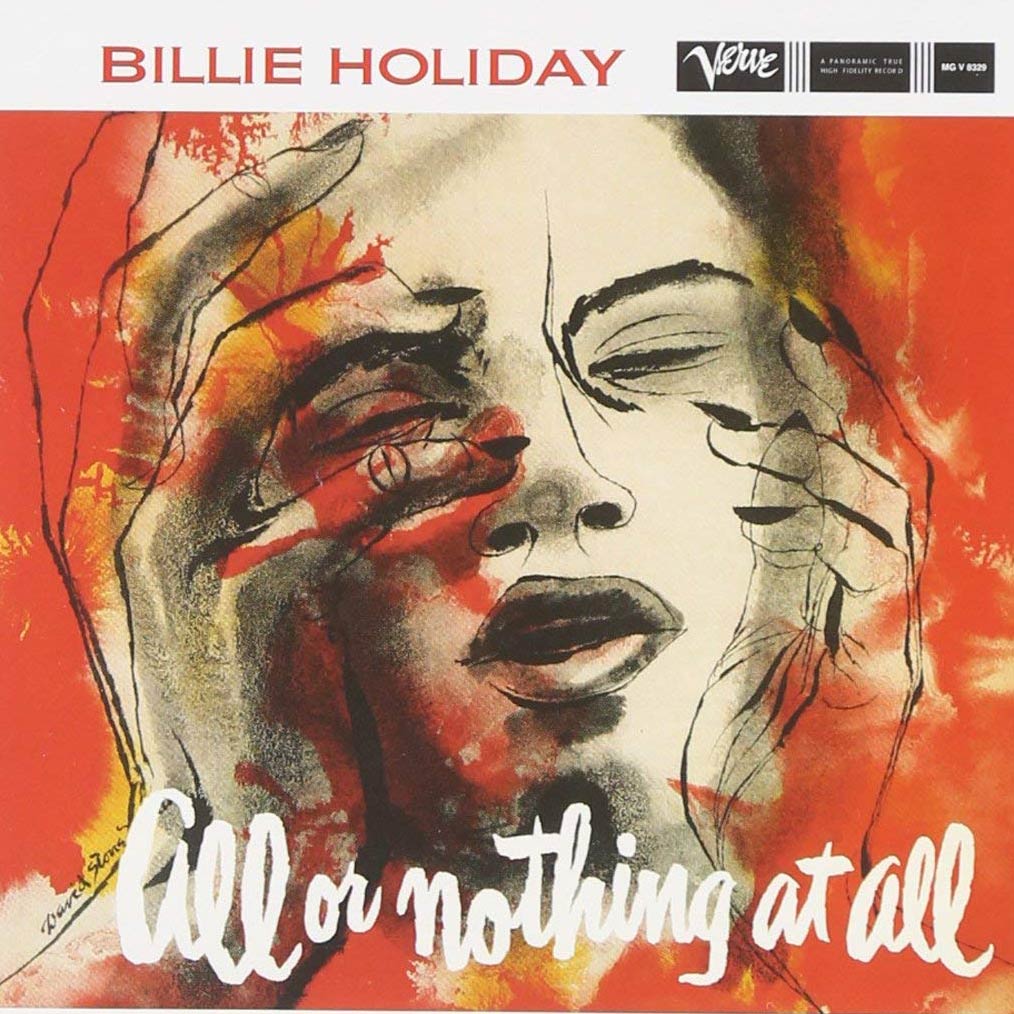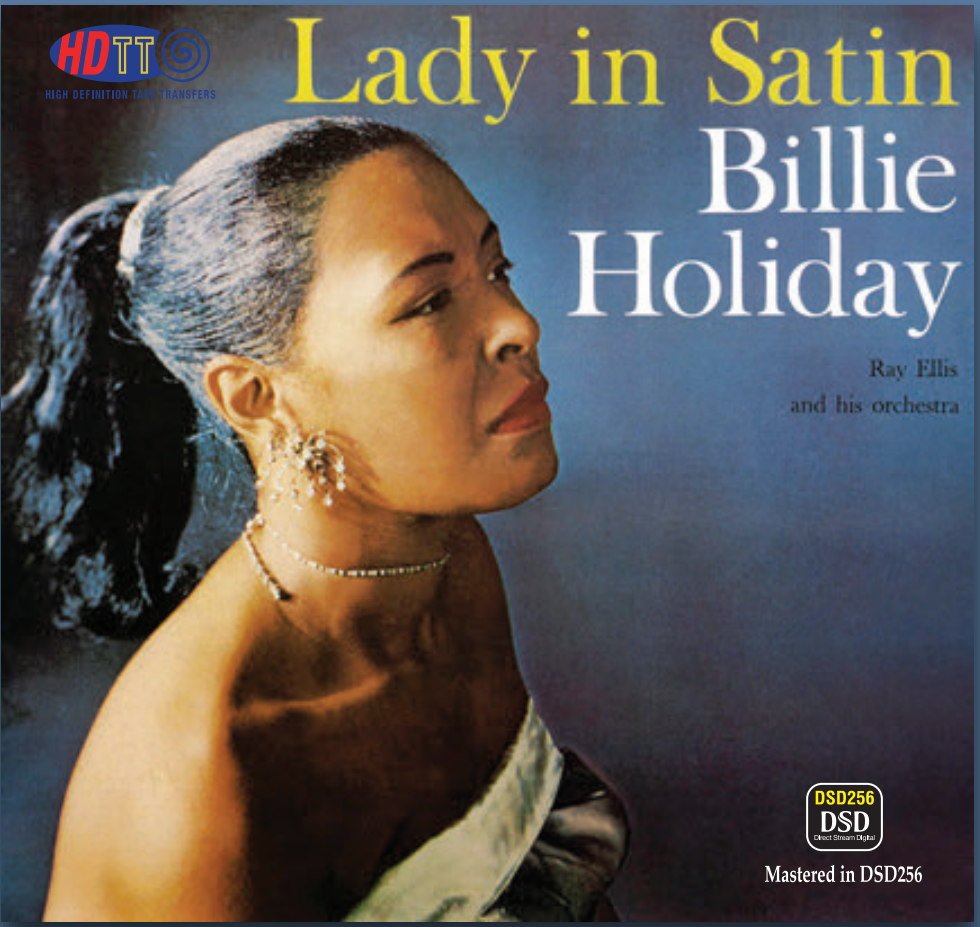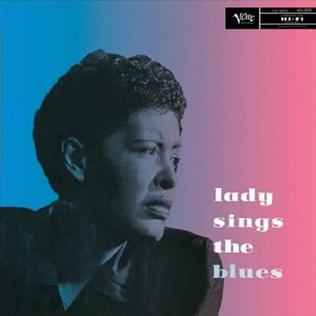Top 3 Billie Holiday Albums
Billie Holiday, born Eleanora Fagan on April 7, 1915, left an indelible mark on jazz and swing music. Affectionately nicknamed "Lady Day" by her friend and music partner Lester Young, Holiday's contributions to the world of jazz and pop singing are celebrated to this day. As we delve into her musical legacy, let's explore three of her best albums that showcase the depth and brilliance of her artistry.

#3 - "All or Nothing at All" (1958)

Released in 1958, "All or Nothing at All" captures Billie Holiday's artistry in a compelling way. The album showcases her matured vocal style and emotional depth. The title track, a timeless classic, exemplifies Holiday's ability to convey profound emotions through her voice. The album's arrangements, featuring a stellar ensemble of musicians, provide a perfect backdrop to Holiday's soul-stirring performances.
In "All or Nothing at All," listeners can witness the evolution of Holiday's vocal delivery and her unique approach to phrasing and tempo. The interplay between her voice and the accompanying instruments creates a rich tapestry of sound, making this album a must-listen for those seeking a deeper understanding of Billie Holiday's later years.
#2 - "Lady in Satin" (1958)
If you are interested in learning music check out our Music Lessons in Tempe.

"Lady in Satin," another gem from 1958, stands as a testament to Holiday's resilience and artistry. The album features a lush orchestral arrangement conducted by Ray Ellis, providing a different musical backdrop compared to her earlier works. The choice of strings and horns adds a new dimension to Holiday's repertoire, showcasing her versatility.
The standout track, "I'm a Fool to Want You," is a poignant exploration of heartbreak, with Holiday's voice painting a vivid picture of love and loss. The emotional depth she brings to each note is unparalleled. "Lady in Satin" reflects a mature and introspective Billie Holiday, navigating through the complexities of life with grace and artistry.
#1 - "Lady Sings the Blues" (1956)

At the top of the list is the iconic "Lady Sings the Blues," released in 1956. This album not only captures Holiday at the peak of her vocal prowess but also serves as a companion piece to her autobiography of the same name. The raw emotion and honesty conveyed in each track make this album a cornerstone of her discography.
The title track, "Lady Sings the Blues," is a tour de force, with Holiday pouring her heart into every lyric. The album also includes memorable renditions of classics like "Strange Fruit" and "God Bless the Child," showcasing the breadth of her interpretative skills. "Lady Sings the Blues" remains a quintessential Billie Holiday album, providing a glimpse into the tumultuous yet resilient life of this jazz legend.
Billie Holiday's impact on jazz and popular music is immeasurable. Her ability to infuse emotion into every note, coupled with her unique phrasing and improvisational skills, set her apart as a true musical trailblazer. Despite facing personal struggles and adversity, Holiday continued to deliver performances that resonate with audiences across generations.
Billie Holiday's life was marked by hardship, starting with a turbulent childhood. Born to unwed teenage parents in Philadelphia, she faced challenges from an early age. Raised largely by her mother's relatives, Holiday experienced periods of truancy, a stint in a Catholic reform school, and work in a brothel. Her early exposure to the records of Louis Armstrong and Bessie Smith ignited her passion for music, setting her on a path to becoming one of the greatest jazz singers of all time.
Holiday's career took off in the late 1920s when she began singing in Harlem nightclubs. Collaborations with Teddy Wilson and John Hammond paved the way for her recording career. However, by the late 1940s, legal troubles and drug abuse overshadowed her success. Despite a brief prison sentence, Holiday staged a triumphant comeback with a sold-out concert at Carnegie Hall.
Her final years were marked by personal struggles and an altered voice, but she continued to captivate audiences with her live performances. Billie Holiday passed away on July 17, 1959, at the age of 44, leaving behind a legacy that forever changed the landscape of jazz.
Billie Holiday's contributions have not gone unnoticed. She posthumously won four Grammy Awards, including Best Historical Album. Her induction into the Grammy Hall of Fame, the National Rhythm & Blues Hall of Fame, and the Rock & Roll Hall of Fame attests to her enduring influence. NPR recognized her as one of the "50 Great Voices," and Rolling Stone ranked her fourth on the list of the "200 Greatest Singers of All Time" in 2023.
Several films, including "The United States vs. Billie Holiday" (2021), have depicted her life, emphasizing the lasting impact of her artistry. Her legacy lives on through the timeless quality of her recordings and the profound influence she had on subsequent generations of musicians.
In exploring Billie Holiday's best albums, we embark on a journey through the highs and lows of her extraordinary life. Each album serves as a chapter in the story of Lady Day, a woman who faced adversity with resilience and expressed her deepest emotions through the art of jazz singing. As we listen to the haunting melodies and poignant lyrics, we are reminded of the timeless brilliance of Billie Holiday—a musical pioneer whose impact continues to reverberate through the corridors of jazz history.
If you like this check out our article: Top 3 Hank Mobley Albums
